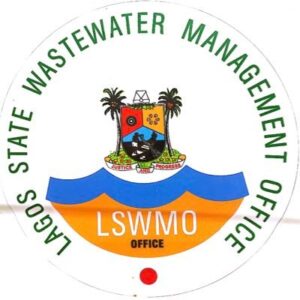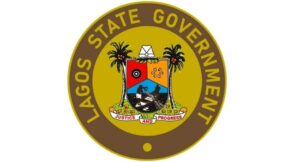
Lighthouse Project: N57bn recovered from N5.2trillion aggregate in MDAs
By Matthew Denis
The Project Light House Programme of the Federal Government being managed by Federal Ministry of Finance, has through the consolidation efforts of the Debt Analytics and Reporting Application, been able to aggregate monumental debts of approximately N5.2 trillion aggregate recovery in 10 Ministries, Departments and Agencies (MDAs) due to concerted efforts on the part of stakeholders and Federal Government.
The Director Special Projects Federal Ministry of Finance, Aisha Omar, made this disclosure today in Gombe, Gombe State during a one-day sensitisation programme for the North-East Geopolitical Zone programme on Federal Government’s debt recovery drive through the Project LightHouse Programme.
Omar hinted that these debts came to the spotlight from data aggregated from over 5,000+ debtors across ten (10) Ministries, Departments, Agencies (MDAs), adding that, the aggravation was still ongoing.
According to Omar, Project Lighthouse initiative was designed to help solve the intractable and perennial problem of debt recovery by using big data analytics technology.
The Director who was represented at the event by the Deputy Director in the Special Projects Department Federal Ministry of Finance, Mrs.Bridget Molokwu disclosed that the core focus of Project Lighthouse is to leverage on big data technology to help block revenue loopholes, identify new revenue opportunities, optimize existing revenue streams especially non-oil revenue as well as improve fiscal transparency.
She emphasized that the essence of the initiative was the recovery of debt owed to the Federal Government by individuals and companies through the debt recovery capability of Project Lighthouse engine. The system according to her collects, integrates and analyses data from revenue generating agencies in order to create insightful information for improved decision making on debt recovery.
According to the Director the importance of the project is leveraging on big data technology to help in blocking revenue loopholes, identifying new revenue opportunities, optimising existing revenue streams especially the non-oil revenue as well as improving fiscal transparency.
She revealed that data from Project Lighthouse Programme revealed that many companies and individuals who owed government agencies and refused to honour their obligations were still being paid especially through the government platforms such as GIFMIS and Treasury Single Account (TSA) due to lack of visibility over such transactions.
The Director explained that the debts were in the form of debt liabilities to the Federal Inland Revenue Service (FIRS); refunds to the Government by companies which failed to deliver on projects for which payment had been effected, unpaid credit facilities granted to both corporate entities and individuals by the Bank of Industry (BOI) and Bank of Agriculture (BOA). Others were judgment debt in favour of Government, debts owed Pension Transition Arrangement Directorate (PTAD) by insurance companies among others.
She explained that the Ministry had taken steps to address the major revenue loopholes some of which included :the issuance of a Ministerial directive on 26th September 2019 to all MDAs with a view to aggregating all government debts across the Public Finance Space, to have a single window on the credit profile of the Federal Government and the Federal Executive Council (FEC) regulatory approval on Wednesday 31st March 2021, extension of the functionalities of the debt recovery capability of the Lighthouse Project Programme.
She noted that the above measures would enable Federal Ministry of Finance to fully automate the debt recovery process and make settlements of debts as seamless as possible.
She solicited the participants’ cooperation and commitment in providing quality and relevant information (debt-related data) to populate the platform, reiterating that their organizations stand to benefit immensely from the intelligence that the initiative will be producing, adding that she was counting on their continuous support to ensure the full realization of the goals and aspiration of the laudable project.
Omar assured the participants that “it is her firm believe that together we can dramatically change our revenue story by fully and innovatively exploiting the great power of Big Data Analytics, Data Science and related technologies”.
She also urged all stakeholders to put in their best to ensure the successful implementation of this initiative, adding that the essence of the workshop was to train officers on how to go about debt recovery, explaining that the initiative was an important aspect of government recovery process.
She disclosed that debt recovery would reduce the country’s indebtedness, tract day- to- day revenue generation, get true profile of our debt recovery porfolio, block revenue leakages and loopholes, adding that, Project Lighthouse initiative has come with this recovery process.
She noted that the organizations stand to benefit immensely from the intelligence generated from the Project Lighthouse Programme.
Earlier the Project consultant, Dr.Abraham Atteh stated that Project Lighthouse initiative was all about debt recovery through the use of technology. He said it was all about tracking, retrieving and recovering government debts. He added that with the initiative, every entity that does business with the government will be able to pay debts owed to the government, adding that systems will be put in place to block loopholes created by these entities. He explained that government was putting every technology in place to recover its debts owed by both private and corporate entities, adding that those categories of debtors would be tracked using existing technology.
Mr. Usim Ahmed, one of the participants was quoted as saying , “The initiative is a good one but government should involve technology so that all these government huge debts be traced and recovered back to government coffers and payent platforms should be made effective with full technology to recover those debts.”
Another participant, Idris Nasiru Baba opined that the policy is great but the implementation might be difficult since government contractors might owe one Ministry and go to the other to do business. He, however, called for total implementation of the policy.
While giving the Vote of Thanks the Deputy Director Presidential Initiative On Continuous Audit (PICA) Federal Ministry of Finance, Mr. Johnson Oludare said, with the Project Lighthouse Initiative, the Ministry believes “Nigeria will work again, adding that engagement should not stop at the workshop but should be a continuous work until a better Nigeria is achieved”. He stated that all the participants were the role players and therefore encouraged to work harder until the debt recovery drive via the initiative was achieved.
Mr. Oludare who reiterated that the workshop was very educative and interactive thanked the participants on behalf of the Permanent Secretaries of the Federal Ministry of Finance, Mr. Aliyu Ahmed and Mr. Okokon Udo.
The North-East Zonal Sensitisation Programme was well attended by representatives drawn from government agencies, institutions and hospitals among others.
It could be recalled that the Ministry had organized a similar sensitisation programme on the Project LightHouse Programme in the South-West, North-West, South-South and North – Central Geopolitical Zones of the country



